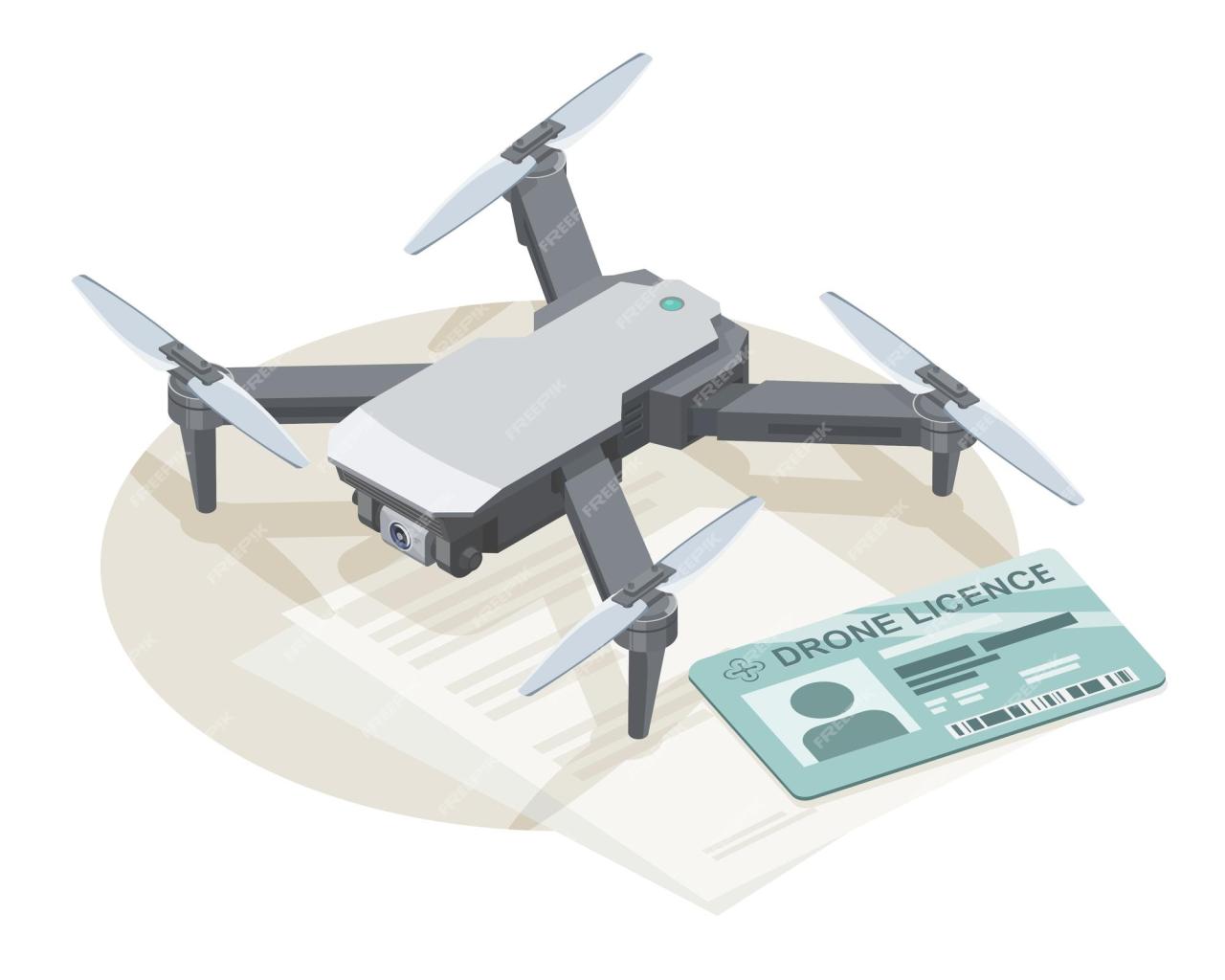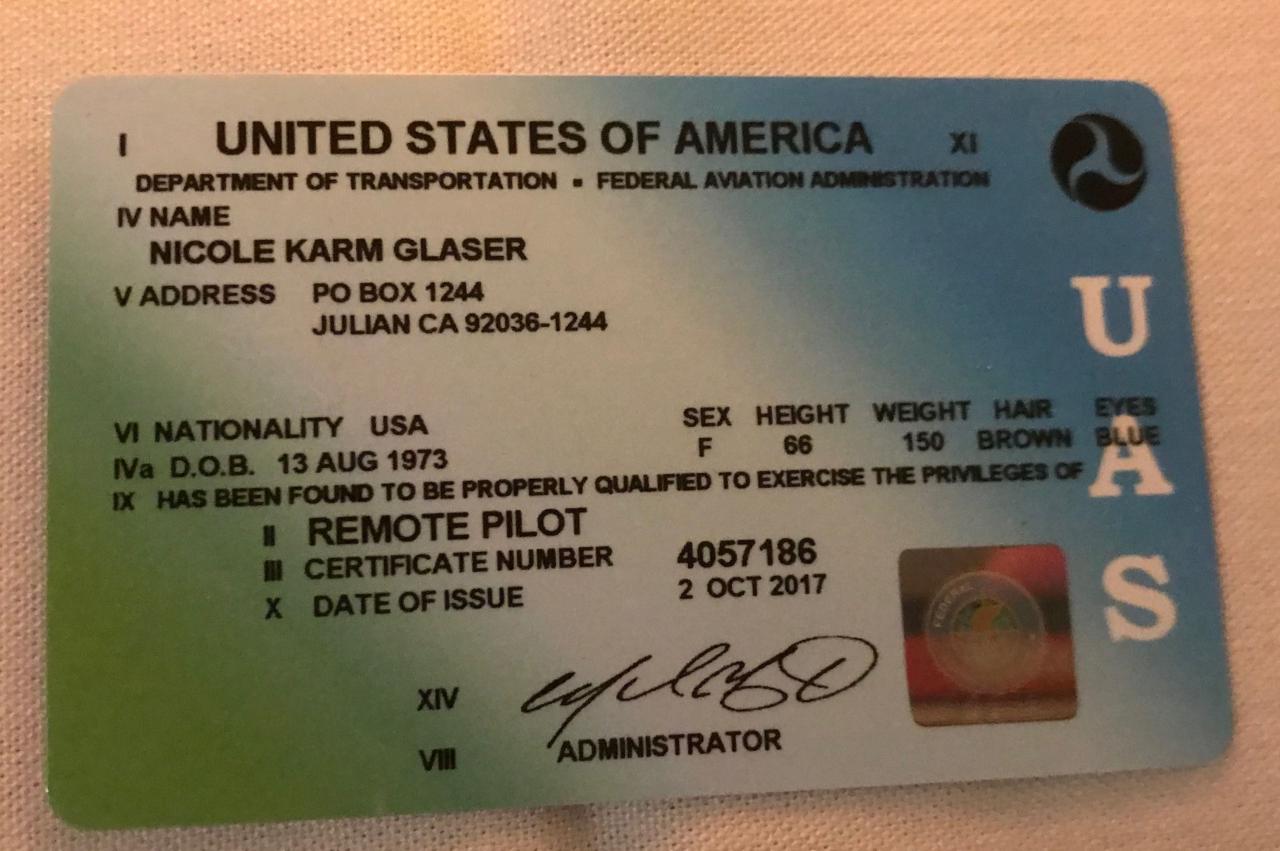Drone Pilot License Canada: So you want to fly drones professionally in Canada? This guide breaks down everything you need to know, from understanding the different license classes and exam preparation to navigating regulations, insurance, and exciting career opportunities. We’ll cover the ins and outs of getting your license, ensuring you’re well-prepared to take to the skies legally and safely.
We’ll explore the various types of drone licenses available, the knowledge requirements for each, and provide a step-by-step process for obtaining your license. We’ll also delve into crucial aspects like drone regulations, insurance needs, and the diverse career paths open to licensed drone pilots in Canada. Get ready to soar!
Canadian Drone Pilot Licensing
Navigating the world of Canadian drone piloting requires understanding the licensing system, regulations, and career opportunities. This guide provides a comprehensive overview to help you become a licensed and responsible drone pilot.
Thinking about getting your drone pilot license in Canada? It’s a smart move, opening up lots of opportunities. Before you dive in, though, check out what’s available for drone purchases – you might find a great deal on equipment at drone Canadian Tire locations. Knowing where to source your drone is a big part of getting started with your drone pilot license Canada journey, so plan accordingly.
Canadian Drone Pilot License Classes
Transport Canada categorizes drone licenses based on the drone’s weight and intended operation. The Basic Operational Knowledge (BOK) is a prerequisite for all licenses. There are two main license classes: Basic and Advanced.
- Basic Certificate: Allows operation of drones weighing less than 25 kg (55 lbs) within visual line of sight (VLOS), subject to certain restrictions.
- Advanced Certificate: Permits operation of drones weighing less than 25 kg (55 lbs) beyond VLOS, under specific circumstances and with additional operational requirements.
The knowledge requirements differ between these classes, with the Advanced Certificate requiring a deeper understanding of airspace management, risk assessment, and operational procedures.
Obtaining a Drone Pilot License: A Step-by-Step Guide
- Complete the Basic Operational Knowledge (BOK) test: This online exam covers basic drone operation and safety.
- Apply for the appropriate certificate: Submit your application to Transport Canada online, including proof of BOK completion.
- Pass the relevant knowledge test: Depending on the chosen certificate, you’ll need to pass a Basic or Advanced knowledge exam.
- Receive your certificate: Once approved, you’ll receive your official drone pilot certificate from Transport Canada.
License Class Comparison
| License Class | Weight Limit (kg) | Operational Range | Knowledge Test Required |
|---|---|---|---|
| Basic | < 25 | Visual Line of Sight (VLOS) | Basic |
| Advanced | < 25 | Beyond Visual Line of Sight (BVLOS)
|
Advanced |
Exam Preparation and Resources
Preparing for the drone pilot licensing exam requires focused study and utilization of available resources. Success hinges on understanding key concepts and practicing exam-style questions.
Exam Strategies and Resources
Effective study strategies include utilizing Transport Canada’s official study materials, practicing with sample questions, and understanding the types of questions asked. Reputable online courses and study guides can supplement your preparation. Focus on understanding regulations, airspace classifications, and operational procedures.
- Transport Canada’s website: The primary source for official information and study materials.
- Online courses: Several reputable online platforms offer comprehensive drone pilot training courses.
- Study groups: Collaborating with other aspiring pilots can enhance understanding and provide peer support.
Sample Study Schedule (4 weeks)

| Week | Focus |
|---|---|
| 1 | BOK material, basic drone operation, safety regulations |
| 2 | Airspace classes, flight planning, emergency procedures |
| 3 | Advanced concepts (for Advanced certificate), practice exams |
| 4 | Review, final practice exams, familiarization with exam format |
Drone Regulations and Operational Rules: Drone Pilot License Canada
Operating a drone in Canada requires adherence to strict regulations to ensure safety and prevent conflicts with other airspace users. Understanding these rules is crucial for responsible drone operation.
Thinking about getting your drone pilot license in Canada? It’s a great step to take if you’re serious about flying. You’ll want to know where to source reliable drones, and you might be surprised to learn that some Canadian Tire locations, as seen on this helpful page drone canadian tire , stock some models. Knowing the regulations and having a good quality drone are both crucial for safe and legal drone operation.
So, get licensed and then find your perfect drone!
Key Drone Regulations
- Maintain visual line of sight (VLOS): Unless you have an Advanced Certificate permitting BVLOS operation.
- Respect airspace restrictions: Avoid flying near airports, heliports, and other restricted areas.
- Fly below 122 meters (400 feet): Unless authorized for higher altitudes.
- Obtain necessary permissions: For operations near critical infrastructure or sensitive areas.
- Keep drones away from people: Maintain a safe distance to avoid accidents or injuries.
- Never fly under the influence of alcohol or drugs.
- Register your drone: With Transport Canada.
Insurance and Liability for Drone Pilots
Comprehensive insurance is essential for protecting yourself and others from potential liabilities associated with drone operations. Different types of insurance offer varying levels of coverage.
Drone Insurance Options
Several insurance providers offer policies specifically tailored for drone pilots. These policies typically cover liability for property damage, injuries, and other potential incidents. The cost of insurance varies based on the type of drone, operational scope, and coverage limits. It’s crucial to compare different options to find the best fit for your needs and risk profile. Consider factors like the value of your drone, the types of operations you conduct, and the potential for accidents or damage.
Thinking about getting your drone pilot license in Canada? It’s a great step to take if you’re serious about flying. Before you jump in, though, check out the specs of some popular models, like the e88 drone , to see which might suit your needs and budget. Understanding different drone capabilities will help you choose the right one once you’ve got your license.
Then, you’ll be ready to take to the skies legally and safely!
Career Opportunities for Drone Pilots

The increasing use of drones across various sectors creates diverse career paths for licensed pilots. Opportunities exist in various industries with strong growth potential.
Drone Pilot Job Roles

| Job Role | Industry | Responsibilities |
|---|---|---|
| Agricultural Drone Pilot | Agriculture | Crop monitoring, spraying, data analysis |
| Infrastructure Inspection Pilot | Construction, Energy | Bridge, pipeline, power line inspections |
| Search and Rescue Pilot | Emergency Services | Locating missing persons, assessing disaster areas |
| Aerial Photographer/Filmmaker | Media, Entertainment | Capturing aerial footage for films, commercials, and real estate |
Drone Technology and Maintenance
Understanding drone technology and performing regular maintenance are crucial for safe and effective operation. Different drones are suited for specific applications, and proper maintenance extends their lifespan and performance.
Drone Maintenance and Inspection
Regular inspections include checking the drone’s battery levels, propellers, motors, camera, and GPS system. Cleaning the drone and storing it properly are also essential. A pre-flight checklist is crucial before each flight.
Pre-Flight Drone Inspection Checklist, Drone pilot license canada
- Battery level
- Propeller condition
- Motor function
- Camera operation
- GPS signal
- Gimbal function (if applicable)
- Radio connection
Illustrative Examples of Drone Applications in Canada
Drones are revolutionizing various sectors in Canada, offering efficient and innovative solutions. Here are some examples showcasing their impact.
Drone Applications
- Agriculture: Precision agriculture utilizes drones equipped with multispectral cameras to monitor crop health, identify areas needing attention (e.g., nutrient deficiencies, pest infestations), and optimize resource allocation (e.g., targeted pesticide application). For example, a large-scale wheat farm in Saskatchewan might use drone imagery to identify areas of the field suffering from drought stress, allowing for targeted irrigation.
- Infrastructure Inspection: Drones are used to inspect bridges, pipelines, and power lines, providing high-resolution images and videos for identifying structural damage, corrosion, or other issues. Imagine inspectors using drones to examine a long suspension bridge in British Columbia, reducing the need for costly and time-consuming manual inspections.
- Search and Rescue: Drones equipped with thermal cameras are deployed to locate missing persons in challenging terrains or during nighttime operations. For example, a drone might be used to search for a hiker lost in the mountains of Alberta, using its thermal imaging capabilities to detect body heat.
- Filmmaking and Photography: Drones provide unique aerial perspectives for film productions and photography, capturing stunning visuals for movies, commercials, and documentaries. Consider the breathtaking aerial shots of Canadian landscapes captured by drones for tourism promotional videos.
Closing Notes
Becoming a licensed drone pilot in Canada opens doors to a dynamic and growing industry. This guide has equipped you with the knowledge to navigate the licensing process, understand the regulations, and prepare for a successful career. Remember to always prioritize safety and responsible operation. Now, go out there and explore the possibilities that await you in the exciting world of Canadian drone piloting!
Questions and Answers
What’s the age requirement for a drone pilot license in Canada?
There’s no minimum age, but you must be able to understand and follow the regulations.
How long is the drone pilot license valid for?
Canadian drone licenses are currently not time-limited. However, this may change, so stay updated on Transport Canada’s website.
Can I fly my drone anywhere in Canada?
No, there are many airspace restrictions and prohibited areas. You must always check the airspace before flying.
What kind of insurance do I need?
Liability insurance is highly recommended, and the type and amount will depend on your operations.
